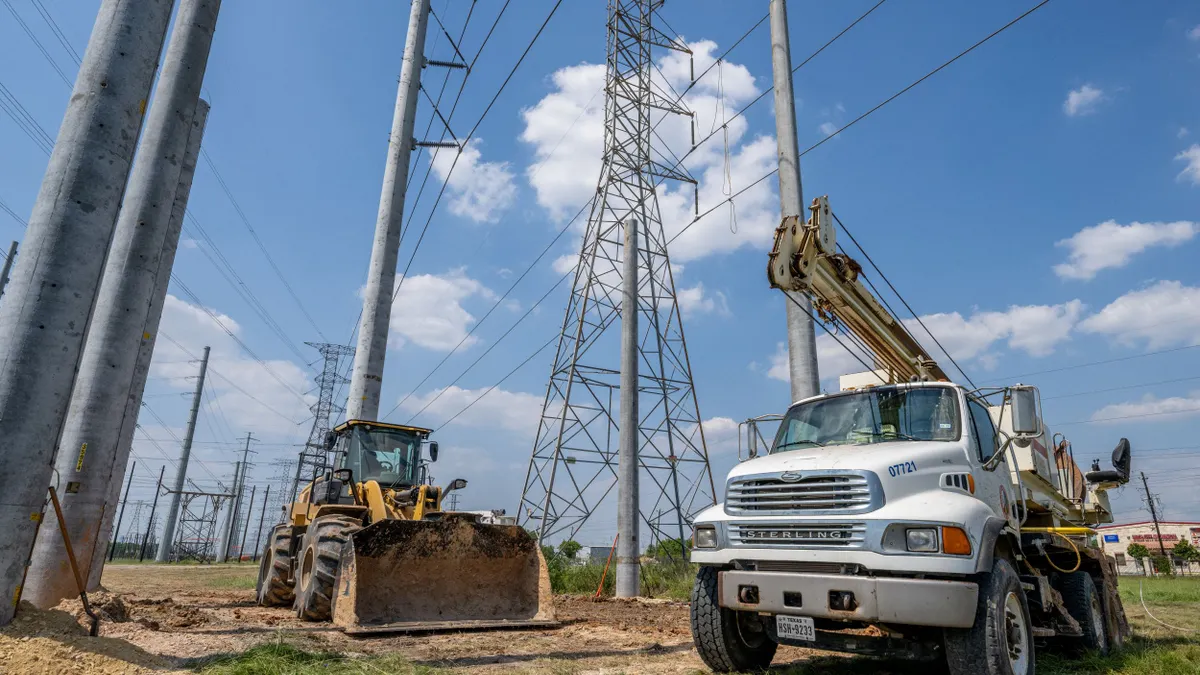Exelon, Pacific Gas & Electric, Xcel Energy and other utilities, along with labor unions and environmental groups, are urging the Federal Energy Regulatory Commission to adopt transmission planning rules that include a right of first refusal for incumbent transmission owners to build regional transmission projects.
“We support the Commission's proposal for regional, long-term, scenario-based transmission planning and urge the Commission to issue, as soon as practicable, a final rule that will facilitate needed transmission investment,” the utilities and others said in a Dec. 7 letter to FERC.
A final transmission planning and cost allocation rule should include the agency’s proposed right of first refusal provisions “to facilitate timely development of needed transmission infrastructure,” they said.
FERC in April 2022 proposed a broad overhaul of its rules for regional transmission planning and for deciding who pays for new transmission facilities. Under the proposal, incumbent transmission owners would be able to build transmission facilities without going through a bidding process if they have unaffiliated partners on the projects.
That provision is strongly supported by utilities, but opposed by consumer-oriented groups as well as the U.S. Department of Justice and the Federal Trade Commission.
Utilities and organizations signing the Dec. 7 letter supporting the FERC proposal included Ameren Transmission, Consolidated Edison Co. of New York, members of the International Brotherhood of Electrical Workers, the National Audubon Society, and the Blue-Green Alliance, a group that includes labor unions, the Sierra Club, the Natural Resources Defense Council and the League of Conservation Voters.
Among other things, the groups said a final rule should include a process for resolving cost allocation disputes, requirements that advanced technologies be considered in transmission planning, and that planning processes have “appropriate” levels of transparency for people affected by transmission projects.
“These provisions are appropriately tied to collaborative and holistic planning outcomes that provide clear benefits to customers, such as jointly owned regional projects and portfolios and ‘right-sized’ projects, and would benefit the goals enunciated by the Commission throughout this rulemaking process,” the groups said.
Separately, groups including Advanced Energy United, American Clean Power Association and Earthjustice pressed FERC to issue a final transmission planning and cost allocation rule as soon as possible.
“Smart transmission planning increases connectivity between areas with high power needs and lower-cost generation sources, lowering overall electricity costs and reducing price volatility,” the groups said in a Friday letter.
The groups said at a minimum a final rule should require long-term, multi-scenario transmission planning; require consideration of all the benefits of transmission; and, include clear and certain cost allocation standards.
“A robust rule with these features will hold electricity bills down, ensure reliability, keep people safe during extreme weather, and accelerate progress towards a clean energy economy,” they said.
Sen. Sheldon Whitehouse, D-R.I., last month urged FERC to “to strengthen and swiftly finalize” its proposed rule.
On the issue of cost allocation, Whitehoue said a “foundational list of benefits” and a requirement they are used by transmission planners will lead to more efficient transmission planning for regional projects and, ultimately, interregional projects.
“Absent this, beneficial projects will not be developed, and consumers will suffer,” he said. “FERC must also be prepared to act if states cannot reach agreement on how to best distribute costs.”
FERC this summer approved new interconnection rules and acting Chairman Willie Phillips said last month he aims to advance a final transmission planning rule as soon as possible.
Potentially helping that effort, given FERC Commissioner James Danly’s non-participation in recent agency decisions, it appears he will leave the agency when this Congressional session ends in January. Danly voted against the proposed planning and cost allocation rule. His exit would leave FERC with three sitting commissioners, breaking any possible deadlock on the proposed rule.























